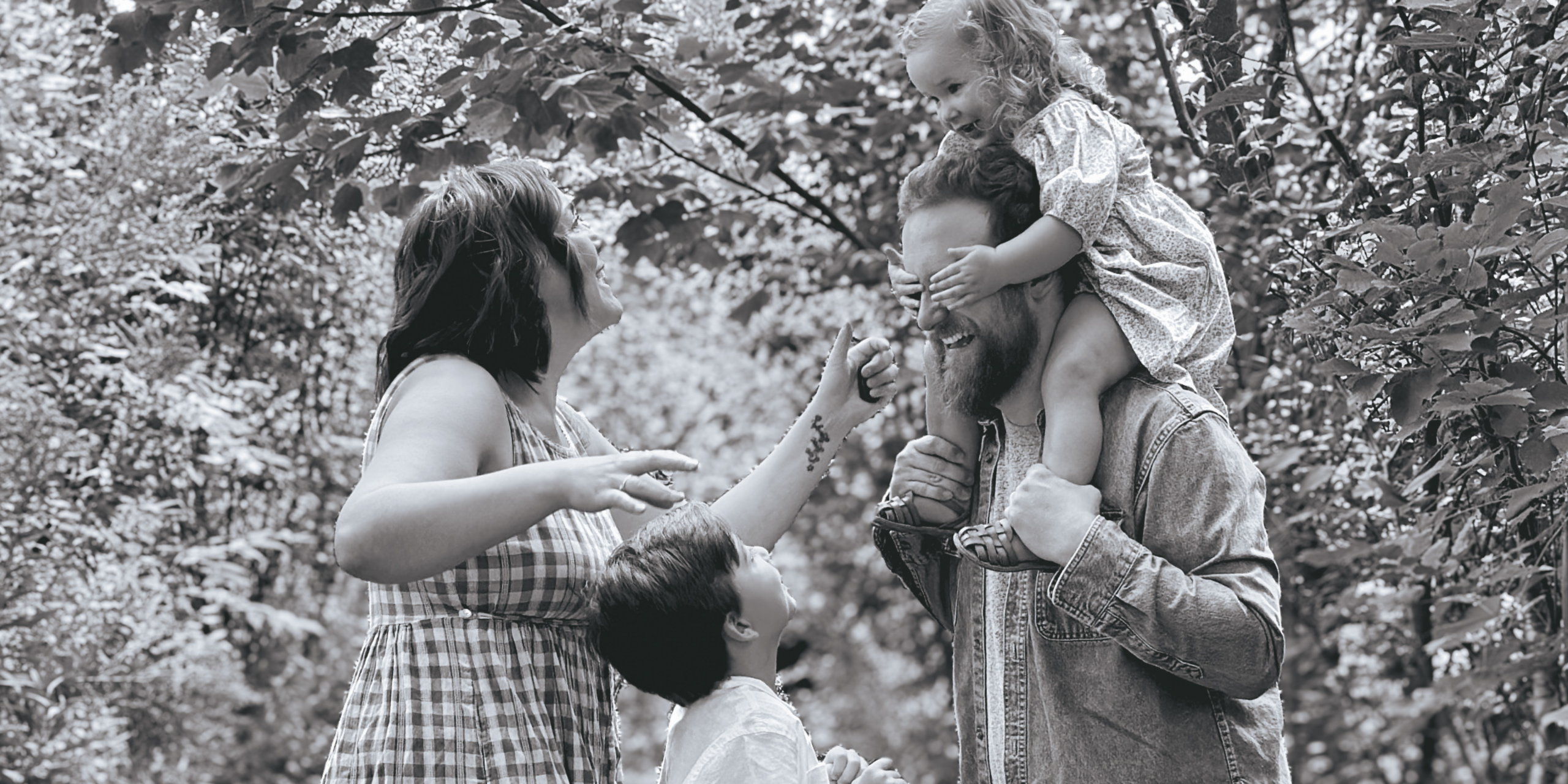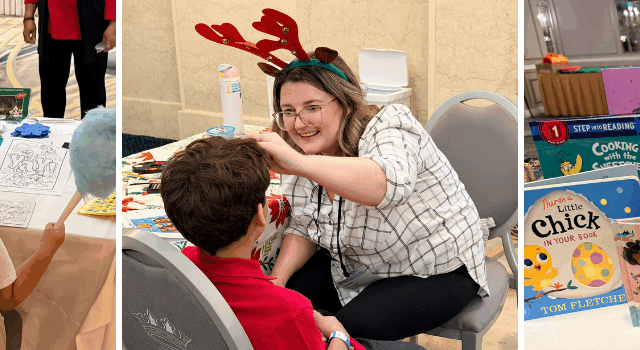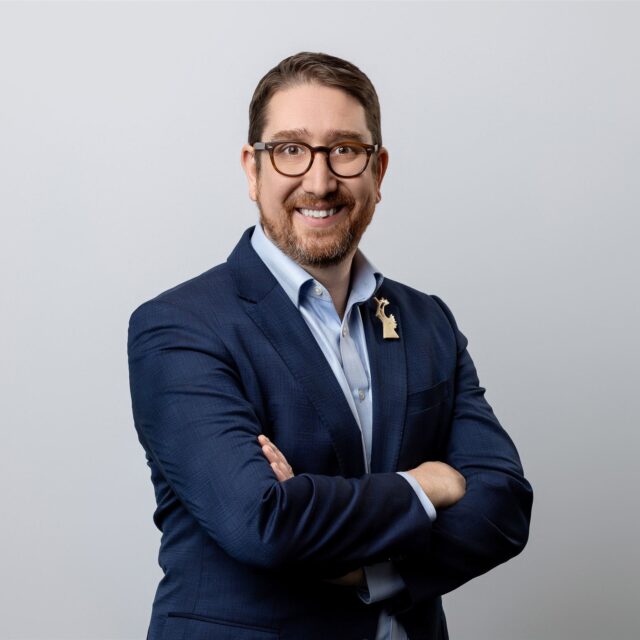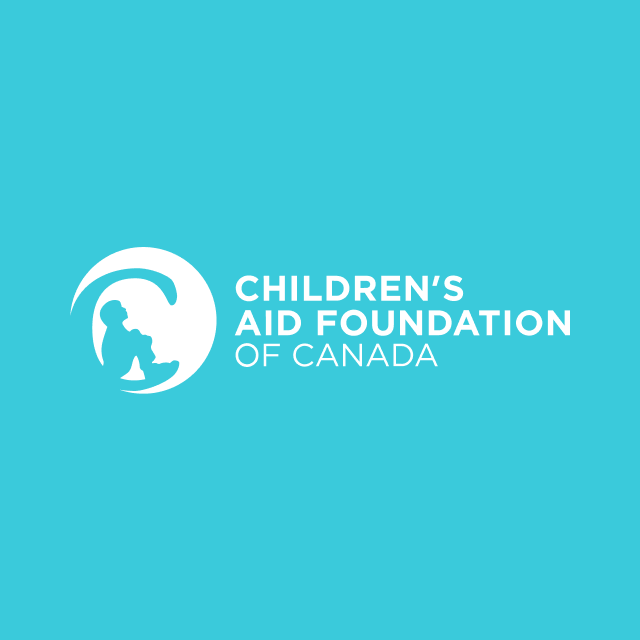Family is more than just the people we are born to – it’s the connections we choose and the support systems we build. For many youth in care, the idea of family often extends beyond traditional definitions to include friends, mentors, and community members who provide love, guidance, and stability. Chosen family plays a crucial role in offering the safety and belonging that may have been missing in biological relationships. Chantal, a former youth in care, shares how embracing this broader definition of family helped her build meaningful, lasting bonds.
As a former youth in care, what does family mean to you? How have you adapted the definition of family to include the village that supports and champions you?
For me, the concept of chosen family is a necessary and important one to share and having other people understand that family encompasses a lot more than who you were born to helps reduce the stigma around the concept of family and possible disconnections from biological family while also opening the door to many other essential connections. For me, chosen family is my friends (like Karen, Caroline and Carrie) who I’ve met along the way and people in the community, like social workers (for me, this was Magda and Laura) and my teachers, guidance counselors, employers and colleagues who all offered me a safe place to find and be myself. This also included the parents of my friends growing up and their siblings who were like these extended families for me who offered a place to stay at times and included me as if I was one of their own. It’s almost like I had lots of parental figures or people that served in that role for different periods of time who modeled appropriate relationships and what love and care was supposed to look like that I wasn’t getting at home, even before I came into care.
And I’m always really, really thankful that they were part of my life. I spent a lot of holidays – Christmas, Thanksgiving – in the company of my friends and their families, and they never made me feel weird that I was there. I really relied on those connections to feel loved and cared for and stay safe, have people checking in on me. I like to say that the community and my friends’ families kind of raised me.
How has your experience in care influenced your perspective on family and how you define it?
I think it’s really opened up my perspective of what family is. Even now as an adult, people will ask me about my family and it can be really awkward. I think it taught me that it’s okay that my relationship with my biological family is defined differently and really understanding that family can be bigger than just your biological family. I learned early on and quickly while in care that is was necessary to expand my own definition of family to survive and to thrive.
Can you share a little bit of your journey towards building your own sense of family and support systems?
As I’ve gotten older, it’s gotten a lot easier for me to accept different ideas of family. When I was young and experiencing traumatic things in my home, I really wanted to hold on to the traditional idea of a biological family. I’m still working on doing the healing work around accepting that the people I’ve chosen to be in my family are safer and it’s okay to have a family that I’ve chosen as opposed to the one that I was born into and not feeling guilt around that. This is hard and takes time and it’s important for youth from care to be offered the supports they need to process their experiences of their biological family as they evolve growing up through counseling or therapy and through safe connections in the community and with their friends and chosen family members.
I think there’s a lot of pressure from people who don’t fully understand your situation to stay connected to your biological family. And that can force you to carry on relationships with your biological family that aren’t safe and aren’t healthy. I had and continue to have to give myself permission to say no, I need to limit what those relationships look like for my own health and my own well-being. It’s definitely taken me a long time to get here and there are days where this is still very hard, and that’s okay – healing and deconstructing and rebuilding your own and societies concept of family and how that ties to who you are is a difficult task and it’s okay and normal for feelings around that to change at times.
I’m 32 now and there are people that I reach out to and say hey, you got me here. You were a pivotal changing point in my life. And I really like to acknowledge that, even if it was something that happened 20 years ago. They’ve probably forgotten but I didn’t. I think it’s always important to let people know the impact that they have as well, and to also remind yourself of the impact you have as someone in your own chosen family – the good friend you are, the parent you are now or the colleague or community member you’ve become – contributing in your own way and defining your own meaning of success and family on your own terms in a way that makes sense to you.
What role, if any, has Children’s Aid Foundation of Canada (CAFC) (being on our Young People’s Advisory Council [YPAC] or one of our programs), played in helping you build community or family?
I think just meeting other young people from care through YPAC has been transformative. It’s an isolating and lonely experience to grow up in child welfare and when I was at school, I didn’t know anybody else that was in foster care and certainly no one at my school, was living independently at 16. So just meeting other people who have had the experience of being in care is just this immediate understanding, and it’s really cool not to feel like you have to hold back on that part of yourself. And there’s a safe space to share that and embrace it in some ways but also acknowledge collectively how difficult that experience was and in many ways still is and to advocate for support and change through the Foundation’s supports and the community.
That goes for CAFC and its staff as well. It’s been a soft place to land. It’s been a really life-changing opportunity. There are some things in my childhood that made me feel like I couldn’t share my voice or that it wasn’t appropriate to talk about what was happening in my home. I often felt like I really didn’t have a voice in anything. So now, to be able to sit at tables and have a say in what we think should happen or talk about how something impacts children from care – it’s that sense of being heard. It’s just a healing experience to do that in a way that advocates for other youth who are now in the position where I was years ago. I do also consider the Foundation as part of my family and working with the Foundation and sharing my story has been really healing and helpful.
Do you have any advice to give to other youth in care who may be struggling to find their community?
I don’t want to sound cliched, but it does get better and to express that it takes being brave to get there – I say brave because I know many youth from care may struggle to ask for help or do not or have not had the people who they can safely rely on at many points in their life and want to acknowledge that building your chosen family happens but by bit, and sometimes by surprise and that it is necessary to find things that heal you to be able to accept that help and to know that you are worthy of these kinds of safe relationships – so I say try new things, creative things, connect with nature and move your body in whatever way feels right, connect with people in your community who feel safe, and know that there are people out there who will be in your corner, some for a lifetime and some for just moments, months or years. Finding your community, your people and ultimately your chosen family is something that takes time, can be difficult, to learn to build trust again, but is transformative. The beauty of it is, that finding your community is defined by you.
I also recommend having a prepared statement when people ask you about your family. There are times that it comes up randomly and you’re not prepared and for some of us, it could be really upsetting. So having a prepared answer can be helpful so that you’re not caught off guard and can manage the emotional part of that afterwards. Take your time and know that you’ve gone through hard times, and you’re surviving and it’s okay to take time to heal, to ask for help and to choose who gets to be a part of your story.



